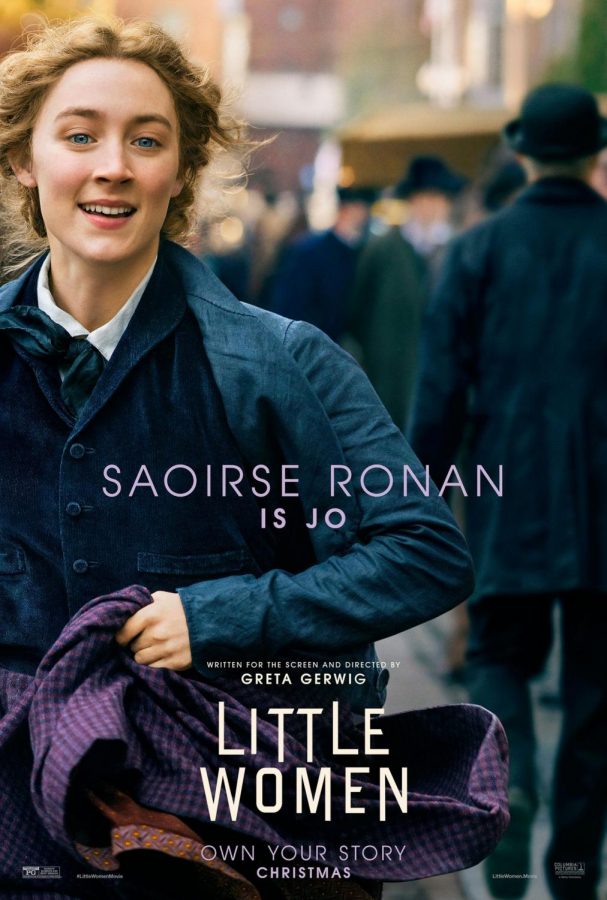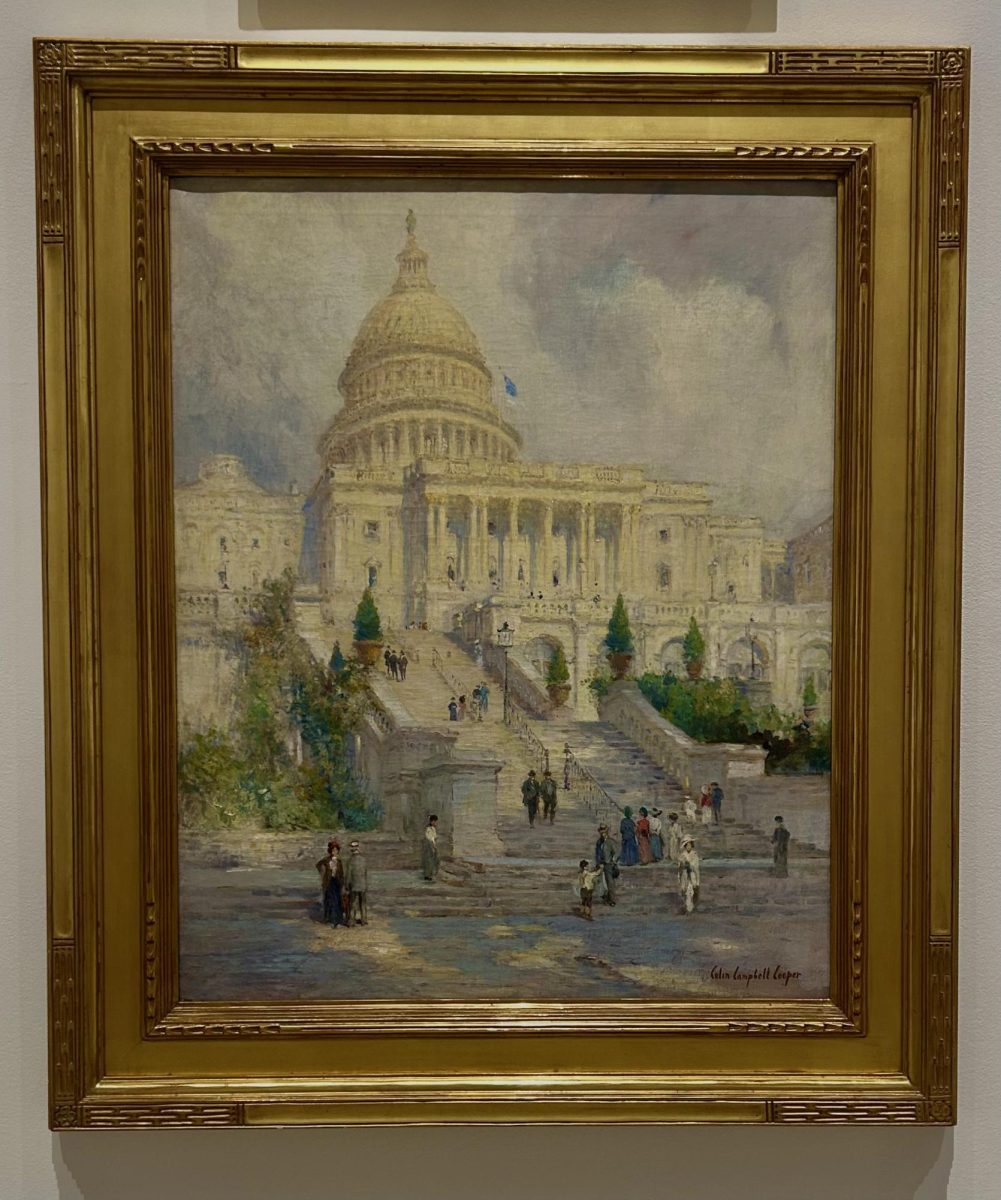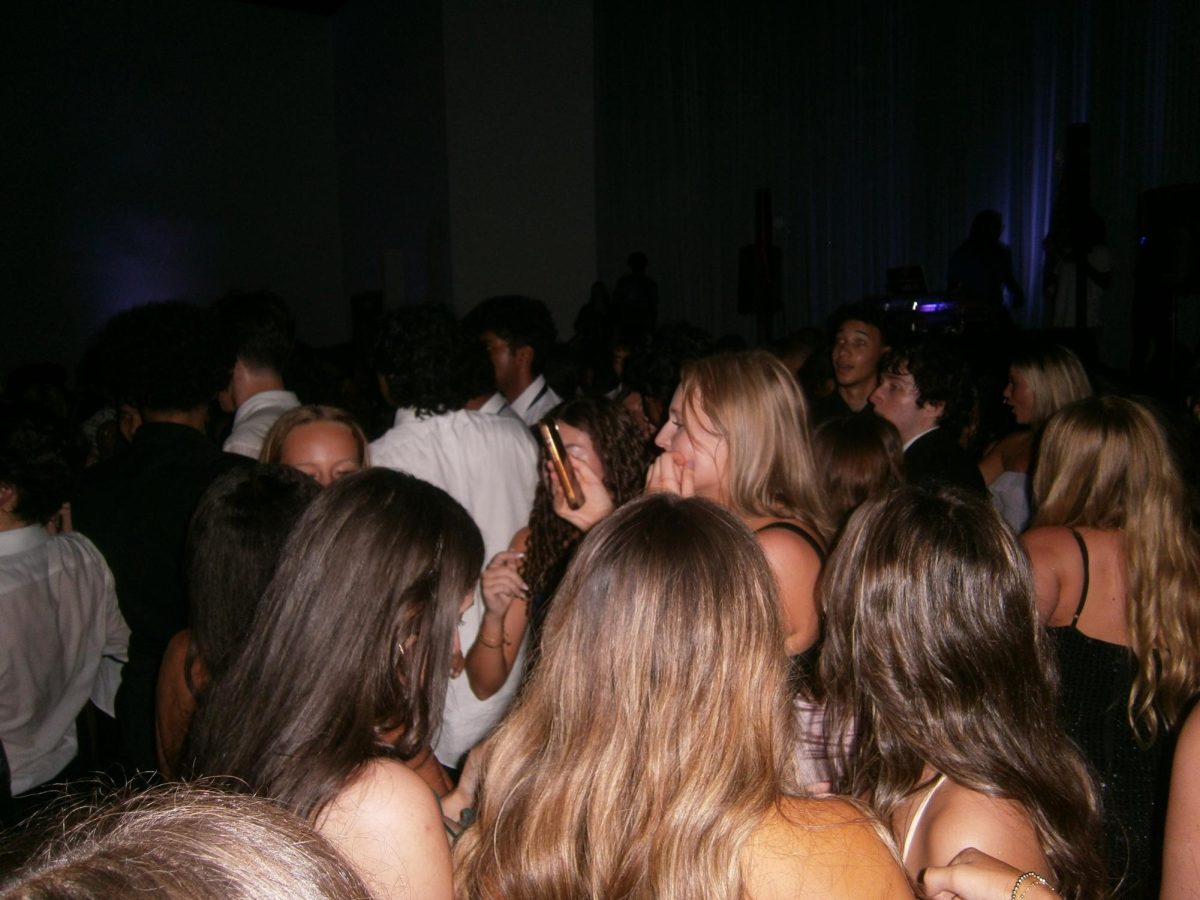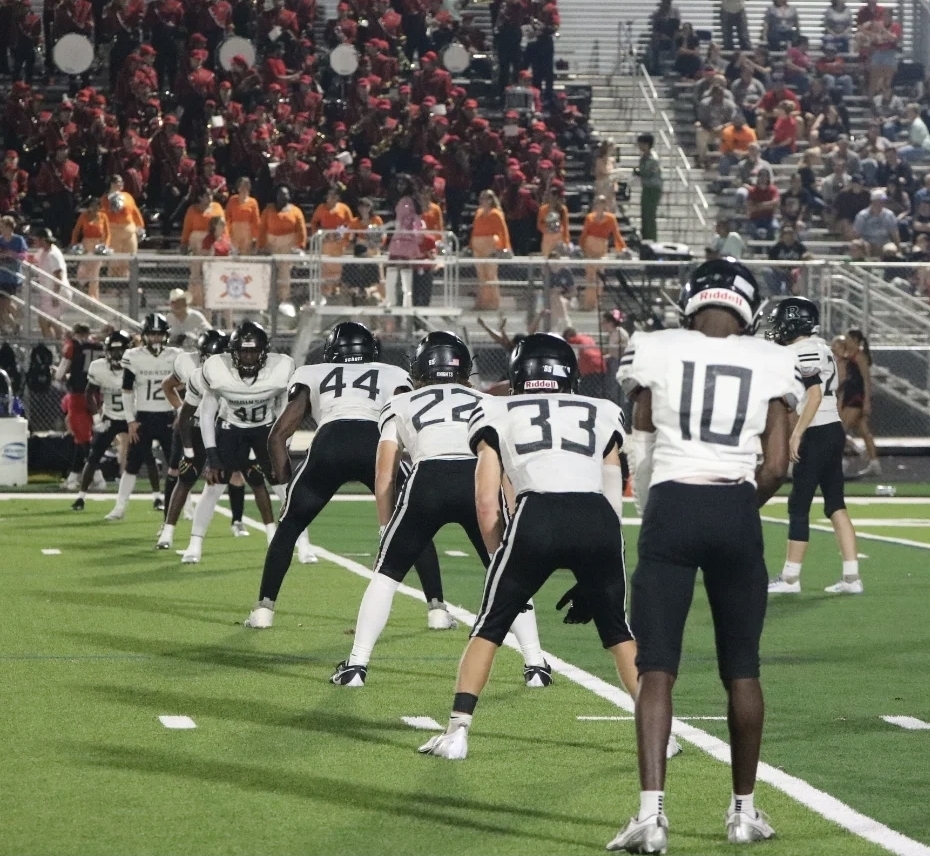Review: Little Women is needed
Greta Gerwig breathes new life into a literary classic.
Photo Fair Use
Saoirse Ronan as Jo in one of the Little Women posters.
January 29, 2020
After the announcement of the new adaptation of Louisa May Alcott’s novel, Little Women, much controversy spread on whether we needed this new adaptation or not. To that, I say yes. Directed by Greta Gerwig, this new adaptation to the film rejuvenates the story in a way that satisfies devoted fans and showcases the uniqueness of Gerwig’s work.
But it wasn’t just Gerwig’s writing that gave the story new life. With a phenomenal cast, the film became unstoppable. Gerwig states that the casting sort of “fell into place” after Saoirse Ronan came up to her at an award show and told her she was going to play Jo March.
Each generation has it’s own Little Women. And, by default, each generation has it’s own Jo March – the captivating young protagonist. Katharine Hepburn, June Allyson, Winona Ryder and Ronan played Jo not only in their own way, but in the way people of the time needed to see her, myself included. Through the years, Jo grew more into the tomboy Alcott envisioned for the character (which she based off herself). This was not only shown through Jo’s costume design, but also her mannerisms and attitude. Much like Ryder’s 1994 version, Jo is shown writing many times throughout the film, often in the late hours of the night with ink stained fingers. This is something both the 1939 and 1944 version didn’t portray.
Gerwig’s direction of the film also shines new light onto Jo’s character. Different film makers over the years have emphasized different themes from the novel to match their time and to reveal shifts in thinking about womanhood, social responsibility and wealth throughout American History. Unlike past versions, Gerwig films her Little Women with flashbacks, interweaving the girls’ past with their futures to show parallels within their life. I think this was a good choice for the well-being of the film.
The film begins with Jo living in New York and selling one of her stories. At the end of her conversation with the publisher, he tells her the next story has to end with the female lead getting married. Jo is not pleased with this, but she agrees. It then goes to show a peak into Jo’s life in New York, where she is a teacher and friends with a man named Frederick. The film flashes back at this point to where the girls meet Theodore Laurence, or as the women call him, Laurie.
Every relationship in Little Women is an important one, especially that of Jo and Laurie. Through their wholesome interaction, the film shows their platonic (and romantic) affection for each other. Laurie loves the Little Women, and treats them like his own sisters. To Laurie, the women are a window to a more humble life that he can use to escape from the coldness of his own. And, to the women, Laurie is the only way they could ever be a part of the higher class.
Though Laurie and Jo’s relationship is lovable, it of course comes to a not so lovable end during Meg’s wedding. Most of the films audience read the book, or saw past versions of the movie, yet watching Jo break Laurie’s heart was still heartbreaking. I will, however, say, that Gerwig’s version of the scene made a little more sense of the classic moment. Coming from someone rooting for Jo and Laurie to get together, I think the movie as a whole showed incredibly well how the two really are better off friends.
I think the most important thing that Gerwig’s 2019 version of Little Women did for fans was make sense of Jo’s ending.
In previous versions, including Alcott’s novel, it wasn’t quite explained why Jo ended up marrying Frederick. Throughout the whole story, it’s clear that Jo doesn’t want to get married. She wants to be independent with her own success. This is part of what makes her a relatable character today. However, at the end of every Little Women, Jo marries Frederick, including the 2019 version. However, Gerwig does it with a twist.
Using the flashback narrative, Gerwig makes the connection between Jo and Alcott more evident, turning Jo’s novel into Alcott’s Little Women. Originally, in the story, Alcott didn’t want Jo to marry, because she herself never wanted to (and never did). But, by request of her publisher, she had Jo marry Frederick. In the book it was always confusing why Jo married, when it was obvious she never wanted to and there was no clear connection with her and Frederick. So, why did everything seem to change at the very end?
Alcott did this on purpose. She wanted the ending to seem comical, it was a joke to her and to her readers. The film shows this in Jo’s talk with her publisher when she half-heartedly agrees to make her main girl marry.
Gerwig made many risky decisions in directing this film, and everyone of them paid off. Many questioned if we needed a new Little Women. Gerwig showed us that, yes, we do. She kept the story we all know and love true to itself, while also breathing a life into it we haven’t seen before to satisfy both fans and critics.











